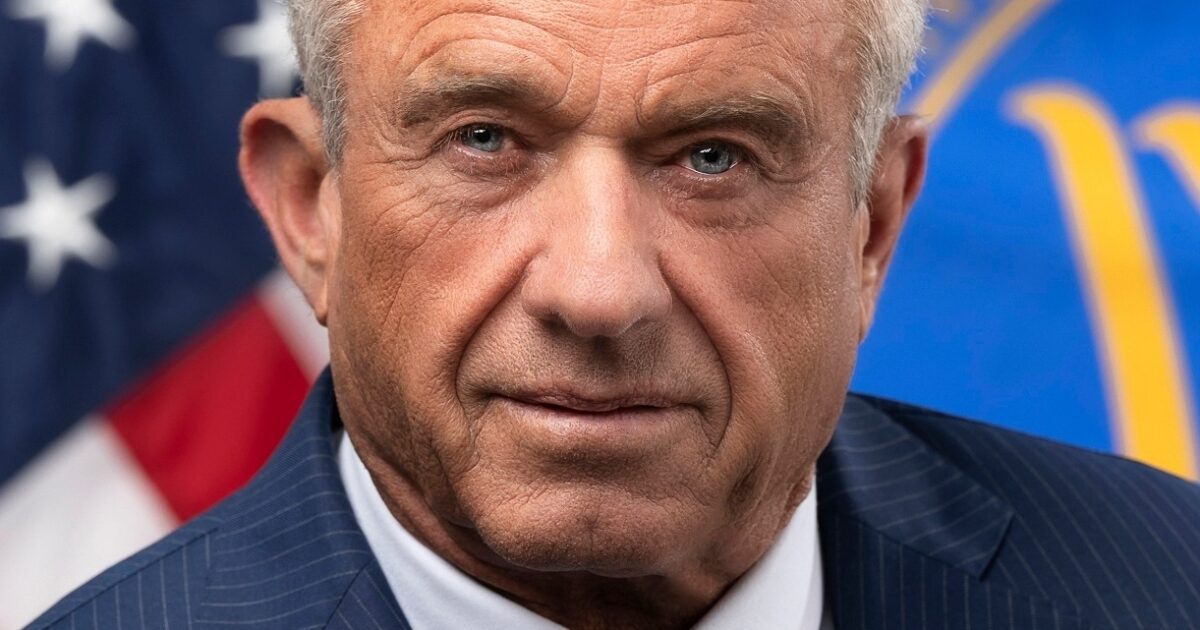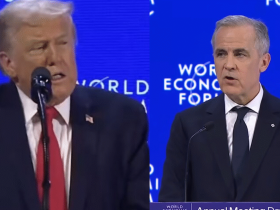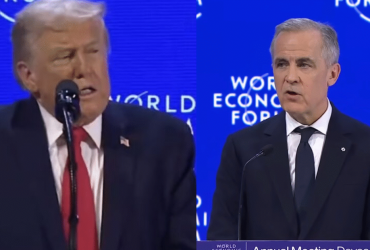United States Department of Health and Human Services, Public domain, via Wikimedia Commons
RFK Jr. just said NO to the World Health Organization’s new pandemic rules, a blueprint for medical tyranny, which would have given the WHO authority to impose global lockdowns, travel bans, school closures, vaccine passports, and digital health IDs. The treaty would bypass Congress and allow the WHO to impose restrictions on Americans without checks and balances and without the consent of the American people.
On July 18, 2025, the United States officially rejected key amendments to the World Health Organization’s pandemic preparedness treaty, citing concerns over national sovereignty and vague, overreaching authority that could allow the WHO to unilaterally declare health emergencies and impose mandates.
United States Secretary of Health and Human Services Robert F. Kennedy Jr. and Secretary of State Marco Rubio jointly denounced the treaty, warning that it lacked public input, used ambiguous language, and elevated political ideals like “solidarity” above national preparedness. They also flagged provisions for global surveillance, digital health documentation, and narrative control, raising fears of international censorship and institutionalized propaganda.
Kennedy explained, in a video statemen, that the WHO’s new amendments to the International Health Regulations (IHR) would effectively strip nations of their decision-making power during health emergencies. “Nations who accept the new regulations are signing over their power to an unelected international organization that could order lockdowns, travel restrictions, or any other measures it sees fit,” he said. Worse still, the WHO wouldn’t even need to declare a health emergency, “potential” risks could be enough to trigger intervention.
Kennedy criticized the Biden-era push for adopting the amendments without public debate, especially given the treaty’s sweeping consequences. “If we’re going to give the WHO that much power, we should at least invite a thorough public debate, especially since the agreement is an official treaty and it bypasses the U.S. Senate,” he said. He also warned that the amendments would require countries to implement “risk communication systems” enabling global messaging dictated by the WHO, essentially legalizing the type of narrative management and censorship seen during the COVID-19 pandemic.
The treaty also called for digital health IDs, vaccine passports, and a centralized medical database, laying what Kennedy described as the foundation for “global medical surveillance of every human being.” He condemned the move as an elite-driven power grab: “The United States of America has a Constitution for a reason. We can’t let it be stripped from us by international bureaucrats and their bosses at the billionaire boys’ club in Davos.”
This latest move aligns with President Trump’s longstanding distrust of the World Health Organization and broader skepticism of global institutions. Even before the COVID-19 pandemic, Trump had called out international organizations like the United Nations, the World Trade Organization, and climate accords, accusing them of exploiting the United States. His fiscal year 2021 budget proposal included a 50% cut to WHO funding, signaling early intent to reduce U.S. involvement.
Trump’s direct confrontation with the WHO escalated during the COVID-19 pandemic. He accused the organization of being biased toward China, citing its early praise of Beijing’s pandemic response and silence on China’s suppression of whistleblowing doctors. He also faulted the WHO for spreading misinformation, opposing travel bans, and reacting too slowly to the crisis. Trump argued that, despite the United States being one of the WHO’s largest donors, the organization failed to uphold transparency or accountability.
In April 2020, Trump suspended U.S. funding to the WHO pending a review, and by July, his administration began formal withdrawal proceedings. That decision was reversed by President Biden in 2021.
Now in his second term, Trump has followed through. On January 20, 2025, he signed an executive order formally withdrawing the U.S. from the WHO. The order cited national sovereignty, unfair financial contributions, and the WHO’s failure to enact reforms or resist political pressure from member states. It instructed Secretary of State Marco Rubio to cease participation in WHO treaty negotiations, pause U.S. funding transfers, and reassign any federal personnel working with the organization. Trump also declared that recent amendments to the WHO’s International Health Regulations would have no legal force in the United States.
RFK Jr. emphasized (in a May 20 speech to the World Health Assembly) that while the U.S. remains committed to global health, it prefers cooperation outside the WHO framework, aiming for new, transparent agreements aligned with American values and sovereignty. Congress has supported this move: Republicans passed resolutions conditioning future WHO engagement on Senate approval and triggered funding cuts. The current administration continues to prioritize national autonomy in health policymaking.
The post RFK Jr. Lauded as Hero After U.S. Rejects WHO’s Expanded Pandemic Powers appeared first on The Gateway Pundit.











